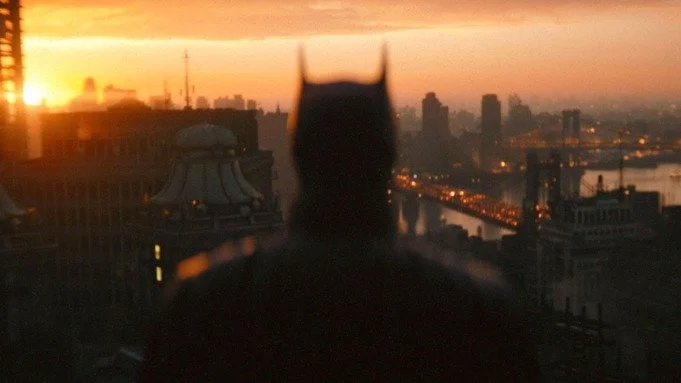Nosferatu (2024) Movie Review
Nosferatu (2024) Movie Review
Robert Eggers is a filmmaker whose work I have historically been somewhat frustrated by and only recently really come around to. I liked but did not love The Witch – I found it too slow for its own good, lacking a satisfying payoff. I had similar feelings toward The Lighthouse, which remains one of the biggest examples of a film that many went crazy for but I mostly shrugged at. Elevated horror is totally up my alley, and I enjoy stories that deal with old mystic folklore and the occult and things of that nature, but unfortunately, I struggled to get behind Eggers’s first two features. I could see the vision and the talent, but it definitely felt like the best was yet to come. The Northman proved me right. I was so impressed by that movie that my opinion of him completely flipped. While not a horror film, The Northman felt like the perfect culmination of everything that made Eggers interesting, shedding the more exasperating aspects of his first two films. The man is clearly someone who has a deep love and respect for horror, especially the more classical aspects of the genre, and so it seemed too perfect for him to be helming the Nosferatu remake. My biggest hope was now that he had more experience, he could fully deliver with a true horror banger that wouldn’t underwhelm. Nosferatu, as it turns out, is anything but underwhelming.
I must confess that I am not especially familiar with the Nosferatu story and have not seen any of the other notable films of the same name (both of which I will probably watch relatively soon). Thus, I had no expectations going into this based on how I wanted the story to be upheld, but I suspect that fans of the original or Werner Herzog’s version will find this to be a respectable adaptation. Eggers takes the story extremely seriously and there isn’t a hint of modernized irony or self-awareness to be found. Clearly in full-on passion project mode, he instead conducts a wildly aggressive and erotic orchestra of blood and chaos that leaves behind the sullen plodding of his previous horror efforts. While I appreciate how much this film indulges in itself, my major criticism of it is that it might be indulging in itself a little too much.
Nosferatu begins with a younger Ellen (Lily-Rose Depp) calling out in the night for companionship, only to be greeted by a dark figure. These first few minutes building up to the title card are perfection, a masterclass on how to get an audience immediately hooked as far as I’m concerned. Overarching themes and moods are established right off the bat, and the story takes off from there. The entire first act is, for the most part, pretty great. There is a proper and intriguing amount of worldbuilding and tension building, and the gothic atmosphere is paired well with story beats that fortunately don’t loiter for too long. Believe me, I hate to spoil it in any sort of way, but the introduction of Count Orlok (a completely unrecognizable Bill Skarsgård) is where the film first starts to falter, even if by only a slight amount. He is brought too thoroughly into the fold too early on for my tastes, and his deep, menacing voice becomes unintentionally amusing due to a few too many lines of dialogue. I know there is only so much reshaping of the story that could have been done, but I personally wish that Orlok had been introduced more slowly, following the Jaws method of antagonist fruition. As the film progresses into its second act, it starts to go all out with its hysteria at a somewhat dizzying speed. Nosferatu turns itself up to eleven before it even reaches its halfway mark, and it doesn’t let down until the last twenty minutes or so. I became reminded that I was indeed watching a Robert Eggers film, where subtlety is an afterthought once the ball truly gets rolling (the shrieking frenzy of The Lighthouse; the machismo viking bloodshed of The Northman). I respect how hard this movie goes, but I could definitely see how it would turn some viewers off.
As far as it functions as a horror film, Nosferatu does not deliver in the manner that I had expected. I would not even necessarily call this elevated horror; instead, the film mostly utilizes shocking imagery and loud jumpscares to get its points across. The jumpscares, which startled me at first (I sat very close to the screen), stopped doing so once I realized they all used almost the exact same abrasive noise and formula. At one point I even thought to myself, “right after this shot there’s about to be a sudden close-up of the monster,” and I was absolutely correct. I wouldn’t call this movie especially scary, but it does have some impressive moments of alarming or creepy imagery. The cinematography as a whole is fantastic; this film looks amazing for its entire runtime. The close-ups of the human characters allow them to come across as appropriately vulnerable and afraid, and the wide shots of the landscapes and locations are so intricate and beautiful, some even having the appearance of painted artwork. The darkness and shadowy look of the film come in handy for maintaining its true gothic nature.
Nosferatu also happens to be impeccably well-casted. Lily-Rose Depp, who is really only just now starting to prove herself as a capable actress, is clearly super excited to be playing this character, and you can tell she’s trying her absolute hardest to pull off the somewhat difficult role of Ellen. Nicholas Hoult is awesome; I’ve seen him in a good number of films at this point and he totally knows what he’s doing. As always, it’s a treat to see Willem Dafoe play unhinged characters, but he’s almost too recognizable at this point; every time he was on screen, I was unable to escape my awareness that I was watching him and not his character. I didn’t even recognize Ralph Ineson at first, but I’m glad he and Eggers are still working together.
Where Nosferatu truly finds meaning is in its display of sensuality and the shame, guilt, and horror that come with it. As previously stated, I am unfamiliar with previous cinematic representations of this story, but I strongly suspect that the erotic themes were amplified for this one in order to deliver a different kind of message. Where any sexual elements of previous films might have perhaps been more subtle, here they are more or less the primary focus. Ellen’s deeply seated desire for the darkness of Nosferatu despite having a devoted and caring husband allows the viewer to ponder the strength of repressed sexuality and potentially the grotesque beauty of sexual deviance. It is not unreasonable to find elements of sensuality within man’s relationships with nature, darkness, and the unknown. Ellen has been plagued all her life with an urge to connect with something darker and deeper, which brings her a tremendous amount of guilt, especially once it starts violently affecting those around her. This manifestation is an interesting one because it can be viewed under a multitude of lenses that will probably be subjective to whoever is watching.
In the end, Nosferatu is an imperfect but remarkable film that gives me hope for the future. It will be interesting to see where Eggers goes from here, now that he has seemingly let off a lot of creative steam with this film. I think horror in general is in a great place, with loads of talented young directors making strong statements, between Eggers, Ari Aster, Jordan Peele, Mike Flanagan, Osgood Perkins, Ti West, Brandon Cronenberg, and Jane Schoenbrun, just to name a few. I’m glad we’re in a place now where an explosive and wild movie like this can be popular on a mainstream level and actually work well.





